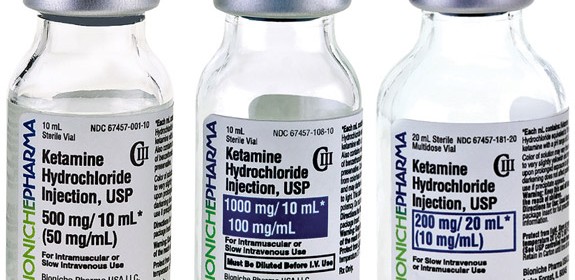Ketamine As A Depression Treatment?

The effects of Ketamine have a quick onset. Unlike conventional antidepressants, which generally take weeks before the effects are noticeable, Ketamine has been shown to lift depression in as little as two hours after the first dose. “It blew the doors off what we thought we knew about depression treatment,” says psychiatrist James Murrough at Mount Sinai Hospital in New York City.
Several companies are now working on patentable forms of the drug, and research in in progress to determine the long term effects on the brain.
The excitement over Ketamine shows how badly new drugs are needed to treat depression. There have been no significant advances in medication for depression in decades, leading many drug companies to close their mental-health divisions during that time.
Today’s most common antidepressants target the brain’s Serotonin or Noradrenaline pathways (some target both). Ketamine acts on the NMDA receptor, a component of the glutamate pathway, which is involved in memory and cognition. Before Ketamine was studied, no one even knew that the pathway was involved in depression.
The most extensive trial of Ketamine carried out so far consisted of 73 participants. The trial found that the drug reduced depression 24 hours after treatment in 64% of subjects who had tried three or more other medications with unsuccessful results. A second group received the sedative Midazolam which resulted in a reduction of 28%. Researchers are now imaging the brains of patients receiving Ketamine treatment in an effort to dissect just how the drug works.
Researchers state that long-term studies of the drug’s effects should also be done before its use becomes widespread. At therapeutic doses, it often produces a dissociative, out-of-body sensation that lasts less than an hour. At higher doses, recreational users report experiencing a ‘K-hole’, which can be described as a deeply disoriented state accompanied by extremely vivid hallucinations.

 Print
Print